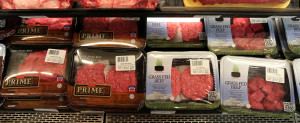puzzled in oregon
Well-known member
- Joined
- May 31, 2020
- Messages
- 829
- Reaction score
- 1,097
Get polled Dexter if possible. They come in all sorts of temperaments. I can't imagine trying to keep some I have seen in a backyard, I have seen the little buggers make a little jump and literally run up and over a 6' chain link fence. And get the ones with horns in a corral, and some would lay open a 6"-8" sliced area on another cow with there horns. At that point I clearly understood why the owner dreaded bringing themThank you for the responses. We want grass-fed for the health benefits, and to eat the beef as God created it. We currently eat and enjoy grass-fed beef, just have never raised our own. To each his own but we're at least going to give the grass-fed route a try.
We're not trying to create a business model or generate any type of profit so much as we're trying to establish something small-scale and sustainable that ourselves and a few other families can invest in and reap the benefits. We chose Dexter because our kids are 6 and 8 and we want them around the cows with as little worry as possible. We've visited a few Dexter farms and found the animals to be docile and manageable. Their smaller size is a benefit since we're only on a few acres, plus they'll be easier on the infrastructure (since pasture boards are $17 each locally now!).
And BC, appreciate the planting advice. I am hoping to seed this fall with winter rye and whatever else our local ag extension suggests for our region. That was the idea though transitioning our steer from grain to alfalfa, in the hopes that the alfalfa pellets would be a good supplement to the bahia pasture their on now.
Thanks again!!
in to the corral.

